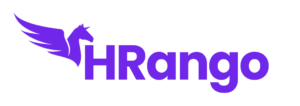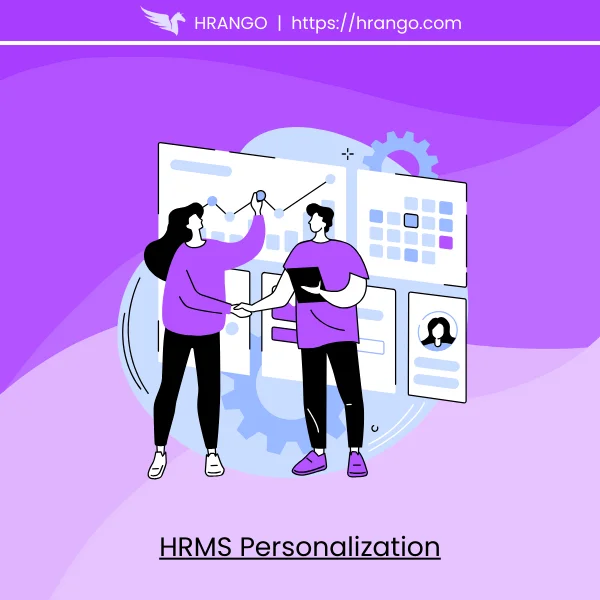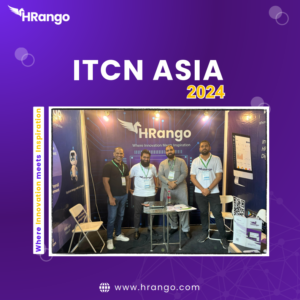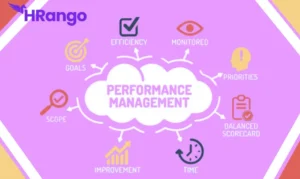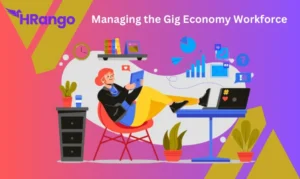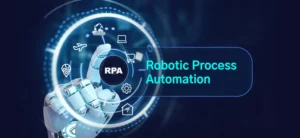Introduction
In today’s fast-paced business environment, one-size-fits-all solutions rarely meet the diverse needs of companies. This is particularly true when it comes to human resource management systems (HRMS). As businesses become more complex and their workforces more diverse, the demand for personalized HRMS solutions is growing. Customization in HRMS is not just a trend; it’s a necessity for companies aiming to optimize their HR processes. This article explores why personalization in HRMS matters, with a focus on how HRango, a leading HRMS platform, is setting the standard for customizable HR solutions.
What is HRMS Personalization?
HRMS personalization refers to the ability to tailor HR software to meet the specific needs of a business and its employees. This can include customizing dashboards, automating specific workflows, and even adjusting the user interface to reflect the company’s branding. The goal of personalization is to create a more efficient, user-friendly experience that aligns with the unique operational requirements of the organization.
At its core, HRMS personalization involves adapting the software to better serve different user roles, departments, and even individual preferences. This flexibility is key to ensuring that the HRMS supports rather than hinders the organization’s HR strategies.
The Role of Personalization in Employee Experience
Personalization plays a significant role in enhancing the employee experience. A personalized HRMS allows employees to interact with the system in a way that feels intuitive and relevant to their specific needs. For instance, a manager might have access to advanced reporting tools, while a regular employee might see a streamlined interface focused on self-service options like time-off requests and benefits management.
This tailored experience can lead to higher employee engagement and satisfaction, as it empowers employees by giving them control over how they interact with HR processes. When employees feel that the tools they use are designed with their needs in mind, they are more likely to engage with the system regularly and effectively.
Why Personalization Matters in HRMS
The importance of personalization in HRMS cannot be overstated. Here’s why:
- Adapting to Diverse Workforce Needs: Every company has a unique workforce with varying roles, responsibilities, and needs. Personalization ensures that the HRMS caters to these differences, making it easier for all employees to use.
- Streamlining HR Processes for Efficiency: By customizing workflows and automating routine tasks, HRMS can reduce the administrative burden on HR teams, allowing them to focus on more strategic activities.
- Enhancing Data Accuracy and Relevance: Personalized reporting and analytics allow HR professionals to access the data that matters most to them, leading to more informed decision-making.
Customizable Features in HRMS
When choosing an HRMS, it’s essential to look for platforms that offer a high degree of customization. HRango, for example, provides a range of customizable features designed to meet the diverse needs of businesses:
- Dashboard Customization: HRango allows users to personalize their dashboards, ensuring that they have quick access to the tools and information most relevant to their roles.
- Role-based Access Control: Different users can have different levels of access based on their roles, which is crucial for maintaining security and efficiency in large organizations.
- Custom Workflow Automation: HRango enables companies to automate specific HR processes, such as onboarding or performance reviews, tailoring these workflows to their specific needs.
- Personalized Reporting and Analytics: HRango’s platform allows users to create custom reports and analytics dashboards that provide insights specific to their business needs.
- Integration with Other Tools: HRango integrates seamlessly with various third-party tools, enabling a more cohesive and personalized HR management experience.
HRango: A Case Study in HRMS Personalization
HRango stands out as a leader in HRMS personalization. The platform’s robust customization features make it an ideal choice for companies looking to tailor their HR systems to their specific needs.
Overview of HRango’s Personalization Features:
HRango offers a range of customization options, from simple user interface tweaks to complex workflow automation. This flexibility allows businesses of all sizes to adapt the platform to their unique requirements, whether they’re a small startup or a large corporation.
How HRango Meets Diverse Business Needs:
HRango is designed to be highly adaptable, making it suitable for a wide range of industries and organizational structures. The platform’s customization options ensure that every user, from HR managers to employees, can interact with the system in a way that best supports their role.
User Testimonials and Success Stories:
Many HRango users have praised the platform for its flexibility and ease of use. Companies have reported significant improvements in efficiency and employee satisfaction after implementing HRango’s customizable HRMS, highlighting the real-world benefits of personalization.
The Benefits of Personalizing Your HRMS
Personalizing your HRMS offers numerous benefits that can significantly impact your organization’s productivity and overall employee experience:
- Increased Productivity and Efficiency: By streamlining HR processes and tailoring the system to user needs, employees can complete tasks more quickly and with fewer errors.
- Better Decision-Making Through Relevant Data: Customized reporting tools ensure that HR professionals have access to the data that is most relevant to their strategic goals.
- Enhanced Employee Autonomy and Empowerment: When employees can interact with an HRMS in a way that feels intuitive and tailored to their needs, they are more likely to engage with the system and take ownership of their HR tasks.
Challenges in HRMS Personalization
While HRMS personalization offers many benefits, it also comes with challenges:
- Balancing Flexibility with Standardization: Too much customization can lead to complexity and inconsistency, which can be difficult to manage, especially in large organizations.
- Managing Customization Costs: Personalizing an HRMS can be costly, particularly if extensive changes are needed. It’s important to balance customization with budget considerations.
- Ensuring Data Security and Compliance: Customization must be managed carefully to ensure that it does not compromise data security or compliance with relevant regulations.
Steps to Personalize Your HRMS
To effectively personalize your HRMS, follow these steps:
- Assessing Your Business Needs: Understand your organization’s specific needs and challenges before customizing your HRMS.
- Choosing the Right HRMS Platform: Select a platform like HRango that offers robust customization options and aligns with your business requirements.
- Implementing Customizations with HRango: Work with HRango’s support team to implement the necessary customizations efficiently.
- Training Employees on New Features: Ensure that your team is trained on how to use the customized HRMS features to maximize their benefits.
HRMS Personalization for Different Business Sizes
Different businesses have different needs when it comes to HRMS customization:
- Small Businesses: For small businesses, cost-effective customization options are key. HRango offers scalable solutions that allow small companies to start with basic features and expand as needed.
- Medium Enterprises: Medium-sized businesses need a balance between customization and scalability. HRango’s platform provides the flexibility to grow while maintaining efficient HR processes.
- Large Corporations: Large companies often require advanced personalization features to manage complex workflows and large volumes of data. HRango’s enterprise solutions are designed to meet these demands.
Ensuring ROI from HRMS Customization
To ensure a return on investment (ROI) from HRMS customization:
- Measuring the Impact of Personalization: Regularly assess how your customizations are impacting efficiency, employee satisfaction, and overall HR performance.
- Continuous Improvement and Iteration: Personalization should not be a one-time process. Continuously review and update your HRMS to ensure it meets evolving business needs.
Future Trends in HRMS Personalization
The future of HRMS personalization is exciting, with several trends on the horizon:
- AI-Driven Personalization: Artificial intelligence will enable more dynamic and personalized user experiences within HRMS platforms.
- Predictive Analytics for Employee Needs: Advanced analytics will predict employee needs and preferences, allowing for even more tailored HR solutions.
- The Role of HRMS in a Hybrid Work Environment: As hybrid work becomes more common, HRMS platforms will need to offer customization options that cater to both in-office and remote employees.
Choosing HRango for HRMS Personalization
HRango is a top choice for businesses looking to personalize their HRMS. The platform’s comprehensive features and excellent support make it an ideal partner for companies of all sizes.
Key Features of HRango’s Platform:
- Extensive Customization Options: HRango offers a wide range of features that can be tailored to meet the specific needs of any business.
- User-Friendly Interface: Despite its powerful features, HRango is easy to use, making it accessible to users at all levels of technical expertise.
- Competitive Pricing: HRango offers competitive pricing plans that provide excellent value for the customization options available.
How HRango Compares with Competitors:
HRango stands out from its competitors due to its combination of flexibility, ease of use, and strong customer support. While other platforms may offer customization, HRango’s user-centered approach and comprehensive feature set make it a superior choice for businesses looking to personalize their HRMS.
Conclusion
Personalizing your HRMS is no longer a luxury—it’s a necessity for businesses looking to optimize their HR processes and improve employee satisfaction. HRango offers a powerful, customizable HRMS platform that can be tailored to meet the unique needs of any organization. By choosing HRango, businesses can ensure they are equipped to handle the complexities of modern HR management while providing a user-friendly experience for their employees.
FAQs
What is HRMS personalization?
HRMS personalization involves tailoring the HR software to meet the specific needs of a business and its employees, including customizing dashboards, workflows, and user interfaces.
How can personalization improve employee engagement?
Personalization enhances employee engagement by providing a user experience that is intuitive and relevant, empowering employees to interact with HR processes in a way that suits their needs.
What are the key features to look for in a customizable HRMS?
Key features include dashboard customization, role-based access control, workflow automation, personalized reporting, and integration with other tools.
How does HRango support HRMS personalization?
HRango offers extensive customization options, including personalized dashboards, workflow automation, and role-based access, making it an ideal choice for businesses looking to tailor their HRMS.
What are the challenges of HRMS customization?
Challenges include balancing flexibility with standardization, managing customization costs, and ensuring data security and compliance during the customization process.
